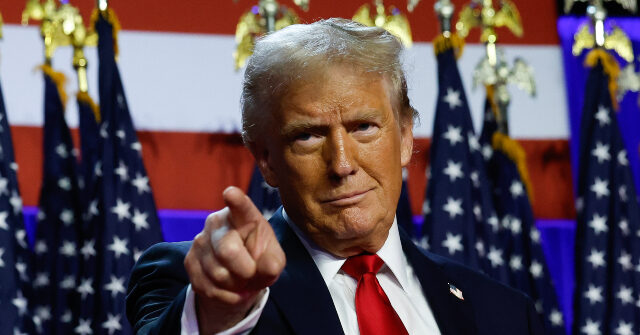Source: The Heritage Foundation | VIEW ORIGINAL POST ==>
I believe two things that may seem contradictory.
First, I believe in generally free trade. Americans are better off when they can buy and sell products from friendly nations without tariffs and other trade barriers.
Second, I believe that Congress should tax products imported into the United States and provide a credit to companies exporting their products to foreign countries. Call it an export-import adjustment.
How do I square the second idea with the first?
Start with the fact that the U.S. is one of the only countries in the world that doesn’t already have such a system in place. When American companies export to Mexico, their products are automatically slapped with a 16% tax.
To Germany? 19%.
To Italy? 22%.
To Hungary? 27%.
Other countries impose these taxes on American products because comparable taxes apply to what their own domestic businesses produce. In effect, foreign countries have decided that taxes should apply to products sold and consumed within their borders, regardless of where they’re made.
>>> The Art of the Tariff Deal—Another Way Trump Can Boost Our Economy
In other words, they use what economists call destination-based tax systems.
But the U.S. takes a different approach: an origin-based tax system, with a few international provisions patched on to discourage offshoring of jobs and intellectual property.
When products originate in the United States, the American companies that produce them are subject to income taxes here, whether the products are consumed in the U.S. or exported abroad. But products that are imported into the U.S. from abroad largely escape U.S. income taxes.
Other countries’ export-import adjustments apply on their consumption taxes, not on their income taxes. But since the U.S. has no federal consumption tax or federal sales tax, there ends up being an imbalance between U.S. and international taxes.
This favors foreign-produced imports and penalizes exported American products.
Adding an export-import adjustment of 7%—much less than the domestic corporate tax rate—would mitigate that imbalance. And since most other countries apply larger adjustments, the U.S. couldn’t reasonably be accused of unfair trade practices that justify a tit-for-tat response from our trading partners.
Because the U.S. consistently runs a large trade imbalance, the export-import adjustment would raise a large amount of tax revenue. The tax adjustment imposed on imports would outweigh the credit against income tax liability that would be allowed for exports. A 7% export-import adjustment could raise upwards of $600 billion in revenue over a decade.
That revenue could be used to reduce taxes for companies here in the United States.
During the campaign, President-elect Donald Trump said he wanted to reduce corporate taxes to 15% for companies that make their products in the U.S. The revenues from the export-import adjustment could be used to allow Congress and the president to do just that.
With an export-import adjustment, Congress could also eliminate many of the complicated features of the international tax system that were added to discourage companies from shifting their intellectual property and profits overseas to countries with lower corporate income taxes.
Specifically, Congress could eliminate the base erosion anti-abuse tax and the foreign derived intangible income incentives. Taxes on global intangible low-taxed income could also be reduced or eliminated in most cases.
>>> This New Climate-Change Rule Would Cost Taxpayers Billions
An export-import adjustment would be more beneficial to U.S. exporters than across-the-board tariffs. Under tariffs, an American manufacturer that uses Canadian widgets as an input in its production of goods that it exports would bear some tariffs.
But under the export-import adjustment, while the American manufacturer would be taxed 7% on the value of the widget, it would then be credited back 7% on the value of the final goods it exports. Companies that export more than they import would have less tax burden, not more.
Further, Congress could set up the export-import adjustment such that exports to foreign countries of concern, such as China, would be ineligible for the export credit.
While Trump could impose tariffs under existing presidential powers, Congress wouldn’t get any credit for deficit reduction in the budget reconciliation deal. On the other hand, if Congress includes an export-import adjustment in the reconciliation package, those revenues could be used as an offset against other pro-growth tax reductions.
An export-import adjustment could meet the political moment in a way that pays for tax cuts that are a boon to American families and businesses.

